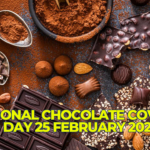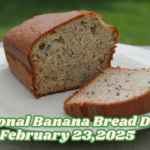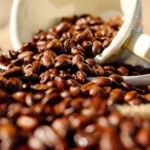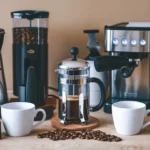Coffee lovers often crave that bold, strong cup, which they might have at the early morning or do during the afternoon as a pick-me-up. However, brewing strong coffee without crossing the line into bitterness could become an art form in itself. The good news is that you can brew robust, flavorful coffee that remains smooth and enjoyable.
We’re going to explore the science behind coffee bitterness and offer actionable tips for brewing strong coffee without sacrificing taste.
What Is Bitter in Coffee?
Let’s talk about what causes bitterness in coffee before we dive into brewing methods:
- Over-Extraction: The undesirable compounds are extracted from coffee grounds if brewed too long or with too much water, making it taste bitter.
- Burnt Beans: Dark roasts are more prone to bitterness due to their extended roasting time, which can scorch the beans.
- Poor-Quality Beans: Inferior beans, particularly robusta varieties, naturally contain more bitter compounds.
- Incorrect Water Temperature: Brewing coffee at extremely high temperatures can extract harsh, bitter flavors.
Brewing Strong Coffee Without Bitterness
Here is an effective way to brew coffee without bitterness:
1. Start with High-Quality Beans
The foundation of a great cup of coffee lies in the beans. Follow these tips:
- Choose Arabica Beans: Arabica beans tend to have smoother, more nuanced flavors than robusta.
- Look for Freshness of the Coffee Beans: Look for fresh-roasted beans from a trusted roaster. Old beans can be flavorless and taste bland or bitter.
- Experiment with Roast Levels: Darker roasts are often stronger, but a medium or medium-dark roast balances strength with sweetness.
2. Grind Your Beans Properly
The grind size greatly impacts the extraction process:
- For Strong Coffee: Grind finer to increase the surface area for water contact, but not too fine as it will result in over-extraction.
- Invest in a Burr Grinder: Blade grinders tend to produce different particle sizes, which may lead to inconsistent extraction. Burr grinders ensure uniform particle sizes.
3. Learn the Water-to-Coffee Ratio
The ratio of coffee to water is critical:
- Strong Coffee Ratio: A general guideline is 1:15 (1 gram of coffee for every 15 grams of water) for a stronger brew. Adjust according to your taste.
- Weigh Your Ingredients: Use a kitchen scale for precise measurements.
4. Brew at the Right Temperature
The ideal brewing temperature is between 195°F and 205°F:
- Too Hot: Leads to over-extraction and bitterness.
- Too Cold: Results in under-extraction and weak flavors.
Use a thermometer or an electric kettle with temperature control for accuracy.
5. Choose the Right Brewing Method
There are brewing methods that suit better for strong coffee:
- French Press: Use coarse grind and steep for 4 minutes to extract bold flavors without bitterness.
- Steep gently to avoid over-aeration of the grounds.
- AeroPress: The AeroPress lets you control the steeping time and the pressure. Use a medium-fine grind and try shorter brewing times for a smooth, strong cup.
- Moka Pot: Also known as a stovetop espresso maker, the Moka pot brews concentrated coffee. Use medium-grind coffee and do not pack the grounds too tightly.
- Espresso Machine: Espresso machines make rich and strong coffee by forcing pressurized hot water through finely ground coffee beans. The grind should be fine but not powdery and tamp evenly for consistent results.
- Cold Brew: Surprisingly, cold brews can be strong and smooth. Use a coarse grind and steep the coffee in cold water for 12-24 hours. Dilute to your desired strength before serving.
For more insights, check How to Choose Your First Coffee Maker
Other Tips to Prevent Bitterness
1. Use Filtered Water
Tap water contains impurities that affect your coffee’s taste. Using filtered water ensures a cleaner and smoother brew.
2. Avoid Over-Steeping
Follow the suggested brewing times for your process. Oversteeping results in over-extraction and bitterness.
3. Degas Fresh Coffee Beans
Freshly roasted beans off-gas carbon dioxide. Allow your beans to degas for 2-5 days after roasting for the best flavor.
4. Clean Your Equipment
Coffee oils and residue can build up in your brewing equipment, causing off-flavors. Clean your grinder, brewer, and accessories frequently.
Improving the Taste of Strong Coffee
To make your strong coffee even more enjoyable:
- Add a Pinch of Salt: A teaspoon of salt can mellow out the bitterness.
- Incorporate Spices: Cinnamon, nutmeg, or cardamom can add an almost sweet depth to the flavors
- Try Milk or Cream: Dairy can mellow out the bitterness and increase the body of the coffee.
- Experiment with Sweeteners: Natural sweeteners such as honey or maple syrup could complement the strong flavors.
Troubleshooting Bitter Coffee
If your coffee still tastes bitter, use this checklist to identify and fix the issue:
- Grind Size: Is your grind too fine?
- Water Temperature: Is your water too hot?
- Brew Time: Are you steeping too long?
- Coffee Beans: Are you using low-quality or stale beans?
- Cleaning: Is your equipment clean and free of buildup?
Summary
Brewing strong coffee without bitterness is a blend of art and science. By focusing on high-quality beans, mastering your grind size, controlling your water temperature, and choosing the right brewing method, you can enjoy a bold, flavorful cup every time. With a bit of practice and the tips shared here, you’ll transform your coffee experience and discover the joy of a perfectly balanced strong brew.
Why does strong coffee taste bitter, and how can I avoid it?
Strong coffee may taste bitter due to over-extraction, burnt beans, poor-quality beans, or some incorrect water temperature. Over-extraction is avoided by using high-quality Arabica beans; and grinding it the correct way, according to the right water-to-coffee ratio with the proper brewing of coffee at the right temperature (195°F-205°F).
What is the ideal grind size for a strong brew?
To have strong coffee, a finer grind allows more surface area and thus more extracting. But avoid grinding too fine, which will also cause bitter over-extraction.
How can I be sure my French press coffee doesn’t taste bitter?
To prevent bitterness with a French press, try a coarse grind, steep for around 4 minutes, and gently plunge to not agitate the grounds too much.
Can I make my strong coffee taste smoother?
Yes, you can smooth out a strong coffee by adding a small pinch of salt, incorporating spices like cinnamon or cardamom, and adding milk or cream to neutralize the flavor.










